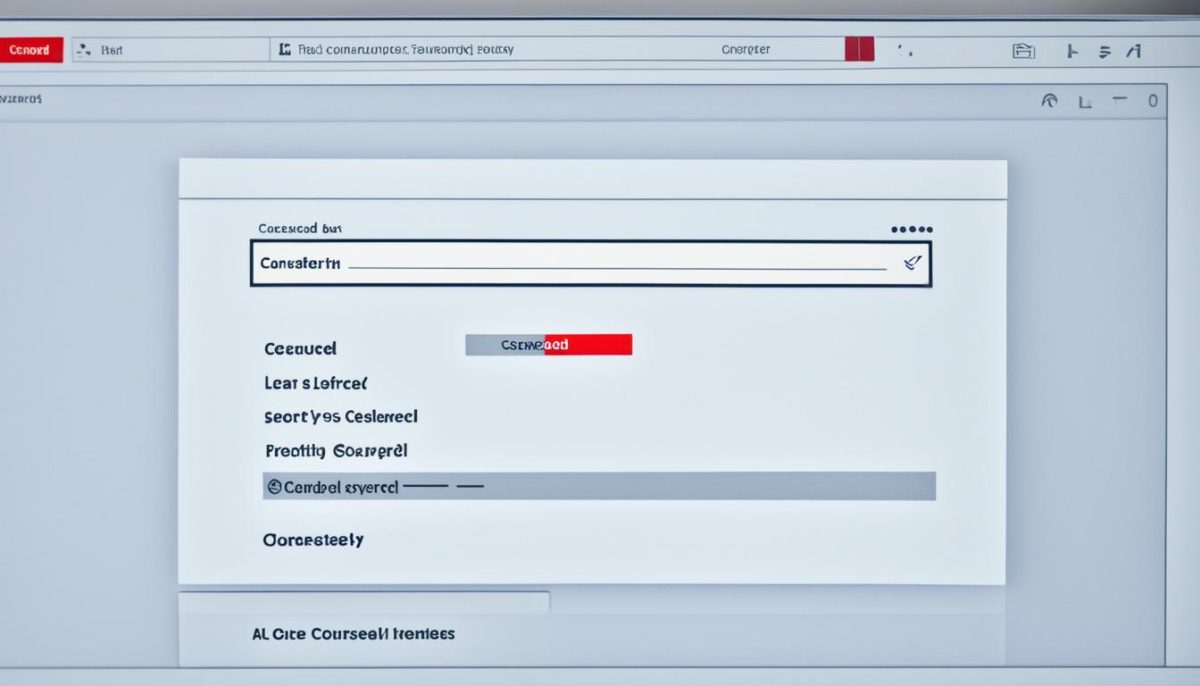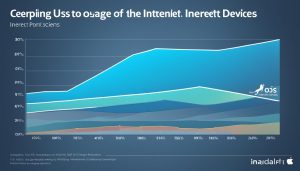Welcome to our article on SOPA and PIPA – two legislative proposals that are making waves in the digital world. In an era where internet freedom has become paramount, it is crucial to understand the implications of these proposals and how they may impact our online experiences.
SOPA (Stop Online Piracy Act) and PIPA (Protect IP Act) are bills introduced in the United States Congress with the aim of combating online piracy and copyright infringement. While protecting intellectual property rights is important, these proposals have raised concerns about their potential to infringe on internet freedom.
At first glance, it may seem like SOPA and PIPA are merely legal matters affecting certain industries. However, their consequences extend far beyond that. These legislative proposals have the power to shape the future of the internet as we know it.
Internet freedom is the core principle that has allowed the internet to thrive, enabling innovation, free expression, and access to information. It has empowered individuals, businesses, and communities around the world. SOPA and PIPA threaten this fundamental principle by potentially censoring websites and stifling creativity online.
In the following sections, we will delve deeper into the specifics of SOPA and PIPA, exploring their objectives, potential impact on internet freedom, and ways you can take action. It’s crucial to stay informed and be aware of these legislative proposals, as they directly affect our digital lives. Join us on this journey to better understand the implications of SOPA and PIPA and why you should care.
Understanding SOPA and PIPA
In this section, we will delve into the details of SOPA and PIPA, two significant legislative proposals that have sparked intense debates and concerns. Understanding these proposals is crucial to comprehend their potential impact on the internet and freedom of expression.
What are SOPA and PIPA?
SOPA (Stop Online Piracy Act) and PIPA (Protect IP Act) were legislative proposals introduced in the United States in 2011. The primary objective of these bills was to combat online piracy and copyright infringement.
SOPA and PIPA were aimed at providing copyright holders and law enforcement agencies with enhanced tools to take action against websites involved in distributing pirated content.
Under these proposals, copyright holders could request court orders to restrict access to websites that were allegedly infringing on intellectual property rights. Additionally, payment processors and advertising networks could be compelled to sever ties with the identified websites.
Opposition and Concerns about Internet Censorship
SOPA and PIPA faced significant opposition from various stakeholders, including technology companies, internet activists, and free speech advocates. Critics argued that these proposals could potentially lead to internet censorship and threaten freedom of expression.
Opponents expressed concerns that SOPA and PIPA might enable overreaching measures, allowing the government to block or shutdown websites without due process.
The perceived broad language and vague definitions in the proposed bills further fueled worries that legitimate websites and platforms might be unjustly targeted, stifling innovation and limiting the open nature of the internet.
Implications for Freedom of Expression
The debate surrounding SOPA and PIPA also revolved around the broader implications for freedom of expression. Critics argued that the proposed legislation might establish a precedent for potential government interference in online content moderation and control.
They highlighted the importance of a balanced approach in addressing copyright infringement while safeguarding free speech rights and ensuring an open digital environment that fosters creativity and information sharing.
Stay Informed, Stay Engaged
As the discussions surrounding SOPA and PIPA continue, it is crucial for individuals and organizations alike to stay informed about the potential implications and actively engage in the conversation. Keeping a close eye on developments in legislation and advocating for a balanced approach is essential to prevent the unintended consequences of internet censorship.

| Pros of SOPA and PIPA | Cons of SOPA and PIPA |
|---|---|
| Enhanced tools to combat online piracy | Potential for internet censorship |
| Increased protection for copyright holders | Risk of unjust targeting of legitimate websites |
| Possible deterrence for intellectual property infringement | Potential chilling effect on innovation |
The Threat to Internet Freedom
The proposed legislation of SOPA and PIPA poses a significant threat to internet freedom, online privacy, and the open nature of the internet. If implemented, these regulatory measures could have far-reaching consequences for individual users, content creators, and small businesses.
One of the potential risks associated with SOPA and PIPA is increased surveillance. These legislative proposals grant authorities more power to monitor internet activities, potentially infringing upon users’ privacy rights. Internet users may face constant scrutiny, leading to a chilling effect on free expression and stifling creativity.
Moreover, SOPA and PIPA have the potential to hamper innovation. By imposing strict regulations and censorship measures, these proposals could discourage entrepreneurs and startups from pursuing online ventures. The fear of legal repercussions may deter individuals from exploring new ideas and technologies, hindering progress and limiting economic growth.
Online privacy is also at stake if SOPA and PIPA are enacted. These legislative proposals could create loopholes that allow unrestricted access to personal data by third parties, resulting in a breach of user privacy. Individuals may find it increasingly challenging to safeguard their sensitive information and maintain control over their online identities.
The consequences of SOPA and PIPA extend beyond individuals to content creators and small businesses. The potential for excessive regulations and legal battles may disproportionately impact smaller online platforms and independent content producers. These entities may struggle to comply with the stringent requirements, diverting resources away from innovation and growth.
It is crucial to recognize the importance of preserving internet freedom and protecting online privacy. SOPA and PIPA pose a significant threat to these fundamental rights, and it is essential for all stakeholders to come together and oppose these legislative proposals.
Illustrative Data
| Threats to Internet Freedom | Impact |
|---|---|
| Increased Surveillance | Erosion of privacy rights and free expression |
| Hampered Innovation | Discouragement of entrepreneurship and stifled creativity |
| Online Privacy Concerns | Breach of personal data and loss of control |
| Consequences for Content Creators and Small Businesses | Disproportionate impact and resource diversion |
Taking Action Against SOPA PIPA
As we have explored the potential dangers of SOPA and PIPA in the previous sections, it is crucial now more than ever to take action against these legislative proposals. Activism and online advocacy play a vital role in protecting internet freedom and ensuring that the open nature of the internet is preserved.
One of the most effective ways to get involved is by joining online advocacy platforms that are dedicated to fighting against SOPA and PIPA. These platforms provide a space for individuals and organizations to come together, share information, and coordinate efforts to oppose these harmful proposals.
In addition to joining advocacy platforms, signing petitions can also make a significant impact. There are various petitions circulating online that aim to gather support from concerned citizens who believe in safeguarding internet freedom. By adding your voice to these petitions, you can help demonstrate the widespread opposition to SOPA and PIPA.
Last but not least, engaging in campaigns dedicated to raising awareness about SOPA and PIPA is crucial for mobilizing larger numbers of people and amplifying our message. Sharing informative articles, using social media to spread the word, and encouraging others to join the movement can make a real difference in the fight for internet freedom.




